Easter or Passover? by Dexter Wakefield
Recently, we observed the Passover, and millions of other people observed Easter. Does it matter which festivals you observe? The answer may surprise you!
Course Spotlight from God’s Feast Days: Passover
Recently, we observed the Passover, and millions of other people observed Easter. Does it matter which festivals you observe? The answer may surprise you!
Course Spotlight from God’s Feast Days: Passover
Author: Nathan Kroon | Student Leader, Living Education – Charlotte, 2022-23
Estimated Reading Time: 5 min.
Our media today sees people as very liberal if they care for the environment, but tending it is important, and doing so helps connect us to God. Micah 4:4 paints a beautiful picture of the Millenium, in which everyone will sit under their own vine and fig tree. This certainly doesn’t mean that everyone will have to be a farmer during this time, but there will be a deep connection to the land.
Today, most people are growing further apart from creation as humanity is being swept up in technology. Modern advances and tools are tremendously convenient, but as we go along, we must not lose our connection with the ground we were made from (Genesis 3:19). As we lay a foundation for our lives, and as we think about how we’ll go forward, we should consider growing things around us!
Not everyone has an affinity for the outdoors, but they can still connect to the natural world from indoors. Flowers can make for colorful additions to your home, both indoors and outdoors. They are also a reminder of all the color and detail that God put into creation. Men might think of them as “girly” plants, but even if they don’t enjoy flowers, they can grow them for the women in their lives (mothers, sisters, wives, etc.)! Vegetable plants and fruit trees can also be very useful. Most people like good food, and growing fruits and veggies can help you to eat better. Finally, plants and shrubs can make your home or balcony seem nicer and look more complete.
Mr. McNair brought several plants that he and his wife had grown, and showed them to the students. He said that it was truly incredible that something as small as a seed can carry the genetic code necessary to grow into a much larger plant. It’s nothing short of a miracle, and it reminds us of a tremendous power in the world that God put in place.
Mr. McNair listed many health benefits that growing plants outdoors can offer:
People are often fascinated with online farming games, but it’s much healthier to invest a little time into the real deal!
Growing fruits and vegetables will help you to save good money on groceries. Mr. McNair recommended buying heirloom plants, which allow you to replant seeds found within the vegetable or fruit. A tomato from a store can cost 233 times more than it would to grow one from a seed packet.
If you’ve never planted anything, you can be practical in doing so! Mr. McNair listed some ways:
The earth’s seasons reflect God’s plan, and the Holy Days are anchored in them. God created both the seasons and the Holy Days because He has a wonderful plan for us. Currently, the time of the year is the season of firstfruits, and the blossoming of flowers and trees reminds us that God is calling people into the truth.
Mr. McNair stated that in our current age, most people of our nation are able to live better than most of the kings of the Bible. He then read from Ecclesiastes 5:9: “Moreover the profit of the land is for all; even the king is served from the field.” Even though we may live relatively like kings, there is still much profit to be found in growing things. We find a lot of unreality in our world. The natural world can help us to see reality again, so grow something—anything!
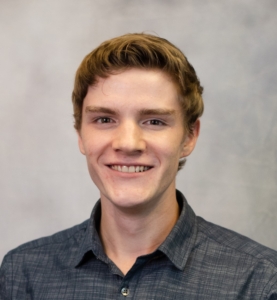
Nathan Kroon is a Student Leader at Living Education. He originally hails from Washington State and is a 4th generation Christian. Currently, he works at Headquarters as a Video Editor and is the Lead Landscaper at the LivingEd dorms. His hobbies include playing guitar, listening to music, drawing, and watching movies.
Author: Kaleb Johnson | Student, Living Education – Charlotte, 2022-23
Estimated reading time: 4 min.
Mr. Ames gave a forum presentation on discipline. He began by playing a six-minute video clip from Admiral McRaven’s famous commencement speech. This clip emphasized the importance of having the discipline to do the little things, the “insignificant” things, day after day. This kind of consistency is critical. After all, “if you want to change the world, start off by making your bed” (Admiral McRaven). Mr. Ames clarified that true Christians should take this seriously because we have the chance to help change the world one day, but we are going to need discipline to get there.
Mr. Ames joined the army reserves as a young man, and even in basic training, they made the recruits make their bed every single morning. That lesson stuck, and Mr. Ames has been making his bed every morning for 64 years. Discipline in this area led to discipline in morning prayer, a necessity for growth as a Christian. In fact, discipline is not just for the military, but as Mr. Ames said, “it is an essential aspect of godly character!”
Mr. Ames explained that there are many facets of discipline. There is athletic discipline, displayed by all athletes who excel in their field. We ought to apply this in our life by making exercise a habit and sticking to it. There is discipline in the fine arts. Is it easy to practice an instrument daily for years and years or to slowly master oil painting? Of course not! It takes discipline.
Mr. Ames also explained that we need business discipline. We can learn to avoid crises and prevent them through planning, strategizing, and executing consistently. Also, there is academic discipline. In fact, the term discipline is closely connected to academia. For instance, the phrase “academic discipline” refers to a subset of knowledge that is taught and researched at Universities. But, we must also exercise discipline in our education by being diligent and working ahead. Mr. Ames related a technique that can help overcome procrastination. He would tell himself, “I am going to work on this project for 5 minutes; that’s it.” This would break the ice, and make it easier to work on projects a little bit every day.
We are also familiar with child-rearing discipline, which is teaching children to obey rules and codes of behavior through punishment for breaking them. But there is also another form of discipline. In fact, it is the most important form.
Why is discipline necessary as a Christian? Mr. Ames explained with a quote by the author H. Jackson Brown (Jr.): “Talent without discipline is like an octopus on roller skates. There’s plenty of movement, but you never know if it’s going to be forward, backwards, or sideways.” If we want to be moving forward and not backwards or sideways, we must have spiritual discipline.
The Bible is not shy on this topic. Mr. Ames pointed out that God exercises child-rearing discipline on us (Hebrews 12:3-11), and we learn to control our actions and have discipline through God’s chastening. This is necessary because humans do not naturally direct their paths (Jeremiah 10:23) and must develop this control, this discipline.
Mr. Ames explained that Paul explicitly affirms discipline. “I discipline my body and bring it into subjection, lest, when I have preached to others, I myself should become disqualified” (1 Corinthians 9:27). Mr. Ames further explained that the term “disciple” is closely connected to discipline. A disciple follows the teachings of a master. Discipline is the act of following rules or guidelines. Thus a disciple exercises discipline in following his master!
Mr. Ames then pointed out that God’s spirit itself promotes discipline. “For the Spirit God gave us does not make us timid, but gives us power, love and self-discipline” (1 Timothy 1:7, NIV). This is explained in-depth in a sermon by Mr. Ames, The Gift of Discipline.
Mr. Ames gave the conclusion of his forum: Make your bed every morning. Discipline is clearly important, and this is a way to practice it and build it in our lives. It is a small task, but if we do it, we start the day with a task completed. Mr. Ames explained that God expects us to practice discipline and to recapture true values. He expects us to display godly love, godly service, and godly discipline.
Mr. Ames gave a forum recently about the true values of abundant living (spoiler alert: this forum also talks about the importance of discipline).
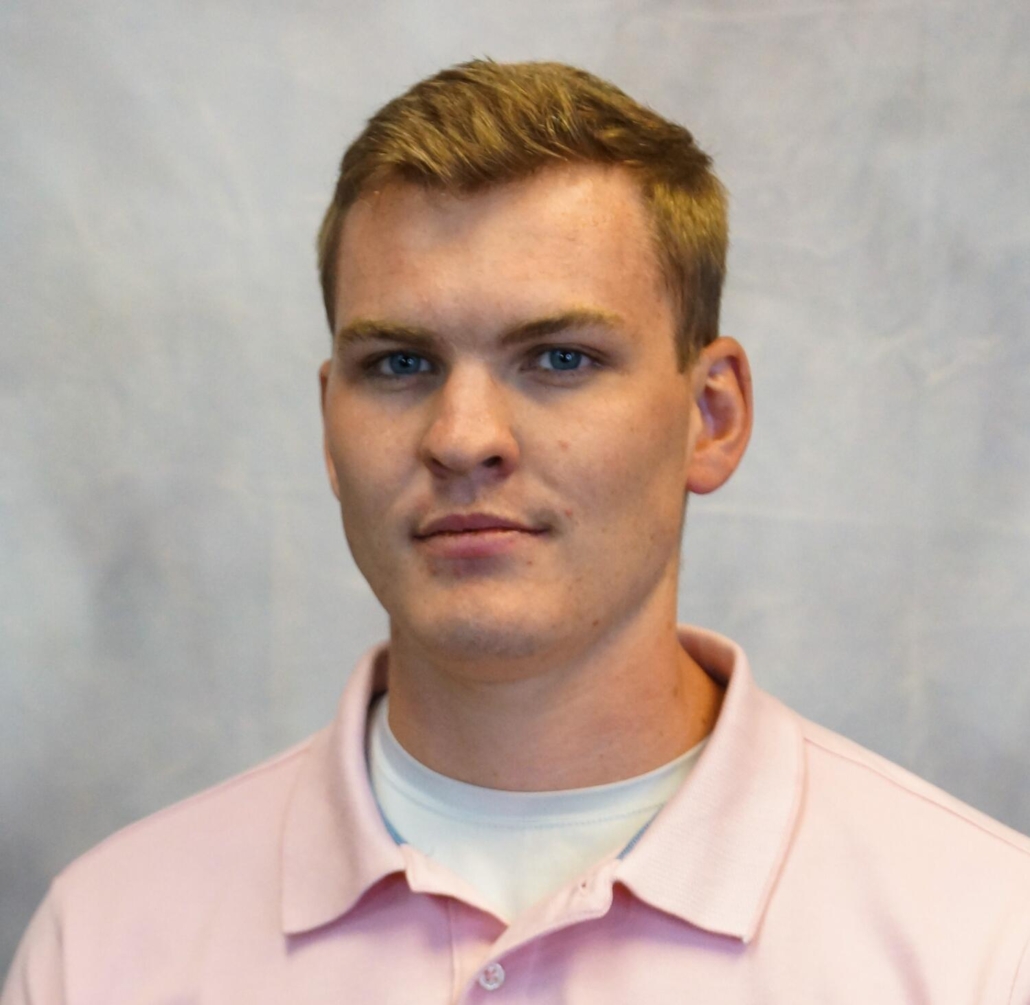
Kaleb Johnson is a student in the Living Education-Charlotte Program. He graduated with a degree in Chemical Engineering from the University of Alabama in Huntsville in the spring of 2022. In addition, Kaleb enjoys writing, video-making, trying new activities (anything and everything), playing chess, and debating (it’s not arguing!) with people. He currently works in the Living Education department producing written content & videos and helping with a variety of other projects.
The Living Education – Charlotte program for 2023-2024 is already nearing maximum capacity, but next year is nearer than you may think. We encourage young adults, parents, grandparents, and everyone else to explore the exciting Living Education onsite program. See how the 2023-2024 students will be kept busy in this nine-month, immersive program!
Note: all links do work but some require you to scroll down to see the relevant information
Additionally, you can find forum summaries and student life articles on our blog.
“And the things that you have heard from me among many witnesses, commit these to faithful men who will be able to teach others also.”
2 Timothy 2:2 NKJV
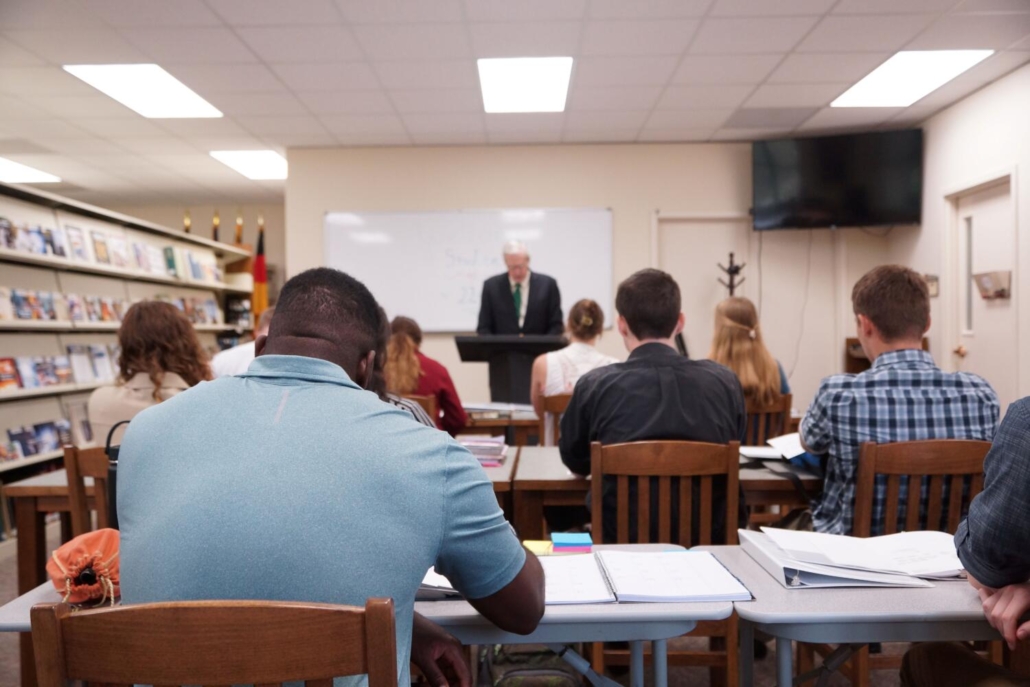
This excerpt outlines important lessons we can learn from the very first Passover!
Course Spotlight from God’s Feast Days: Passover
Author: Kaleb Johnson | Student, Living Education – Charlotte, 2022-23
Estimated reading time: 4 min.
Smartphone Users, Try our mobile friendly version!
Mr. Wakefield recalled that Mr. Armstrong asked brethren at Holy Days, “Why are we here?”
It is a powerful question that can be extended beyond why we keep God’s Holy Days. It can apply right down to the fundamental question, “Why am I in the Church at all?” And that, as Mr. Wakefield explained, is worth examining.
If we look closely at our motives for any action, we find a lot of them, ranging in importance and relevance. This is true even with our reasons for being in the Church. Mr. Wakefield explained that we can have subjective reasons and objective reasons. Reasons that are strong and ones that are weak. We have many good reasons, and if we’re honest with ourselves, we may even have bad reasons. These also have different levels of importance to us. Some are primary reasons and are fundamental to why we are in the Church, and others are additional, almost bonus reasons.
There is no use denying the reasons that are truly most important to us because God knows our every thought and intent (Genesis 6:5), and there is danger in having weak or bad reasons for being in the Church; after all, many people leave the Church because they lose their primary reason for being there. Our main motive for being in the Church should be unshakeable.
Mr. Wakefield explained that there are some reasons that are good, but only as supporting motives. They cannot be the main reason we are in the Church. He proceeded to give 10 “OK” reasons and explain their weaknesses.
Mr. Wakefield then explained some primary reasons we should be in the Church that are unshakeable and stable. We are obedient to God. We follow God from our heart. We don’t have to be convinced or bullied into it. God’s Church has the truth. We recognize a church as God’s because it teaches the whole counsel of God. Sometimes, what a church does not say is important. The truth has been questioned and battled against for years, but we should be in the Church because it possesses the unalterable and objective truth. God’s Church does the Work. The work goes right up until the end of the age. Mr. Wakefield pointed out that “the effective working by which every part does its share, causes growth in the body” (Ephesians 4:15-16). We are in the Church because it is doing the Work of God.
Mr. Wakefield concluded by saying that God may allow us to be challenged, testing our reasons and pushing us to build better and right ones. We must ask ourselves, “Why would I stay here?” We must stay in God’s Church even though we will face tribulation, offenses, disagreements, and many other challenges. We must have stable reasons that are the foundation of why we are here.
Mr. Peter Nathan also gave a forum, asking not “why are we here?” but rather “what’s your world view?” He also discusses the importance of self-exanimation and understanding our inner-motives. Read about this forum here: What’s Your Worldview?

Kaleb Johnson is a student in the Living Education-Charlotte Program. He graduated with a degree in Chemical Engineering from the University of Alabama in Huntsville in the spring of 2022. In addition, Kaleb enjoys writing, video-making, trying new activities (anything and everything), playing chess, and debating (it’s not arguing!) with people. He currently works in the Living Education department producing written content & videos and helping with a variety of other projects.
Author: Sabrielle McNair | Student, Living Education – Charlotte, 2022-23
Estimated reading time: 4 min.
Smartphone Users, Try our mobile friendly version!
The Living Education girls were accompanied by Mrs. Carol Weston and Mrs. Dawn Rothenbacher and were led by Ms. Rebekah Ross. In total, ten women set off for this ladies’ weekend in South Carolina.
Within a few hours, we arrived at the rental house on the outskirts of Charleston, settled in, and prepared the Friday night dinner meal. As the sun went down, the gorgeous view from the dock overlooking the river was enjoyed by all. Observing the beauty of God’s creation made our Friday night dinner feel like a meal with a show. We enjoyed spending time together as women of all ages.
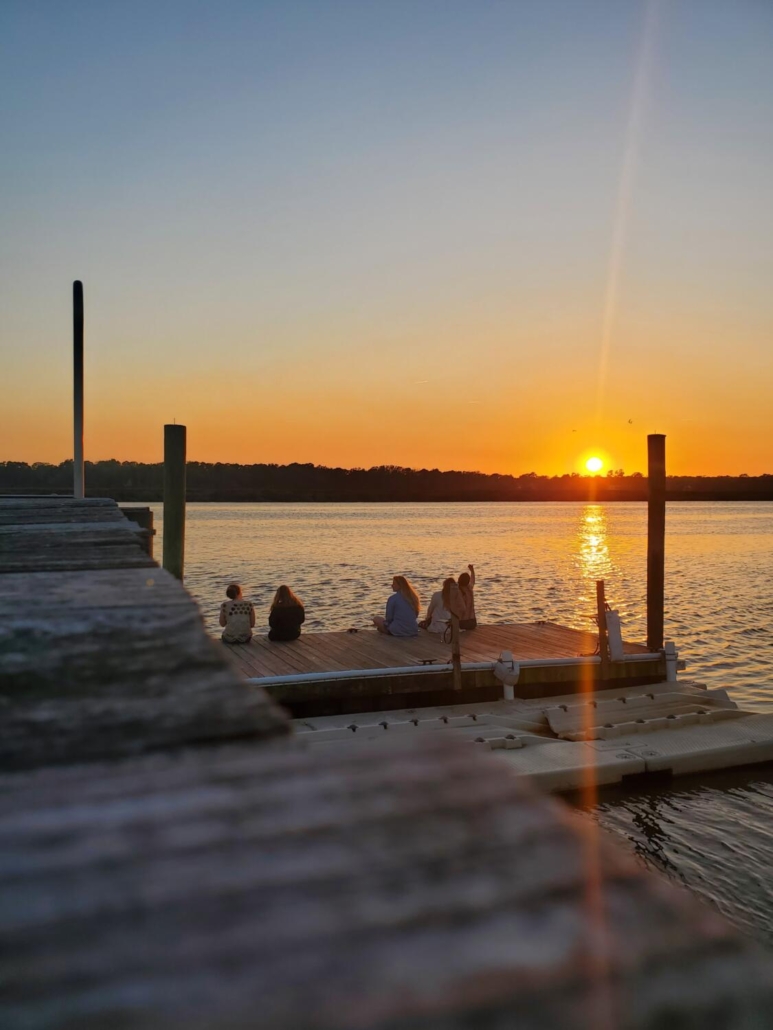
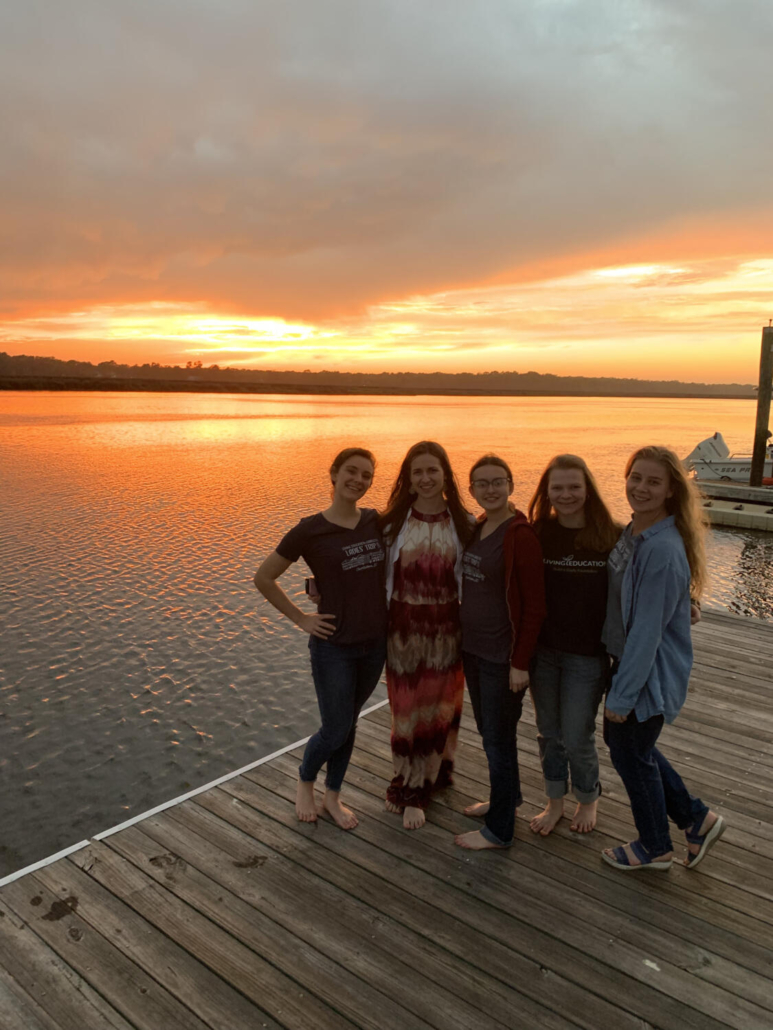
We headed off on Saturday mid-morning to attend the follow-up TWP that was taking place at the local church location in Walterboro, South Carolina. Mr. Alex Celan spoke about the Holy Days and their importance in God’s plan, then welcomed everyone to enjoy fellowship and snacks. The church service ensued shortly after for the members, with the sermon provided by Mr. Dexter Wakefield, a familiar face for the Living Education students. In addition to his regular duties at Headquarters, Mr. Wakefield is also a faculty member for Living Education, teaching public speaking. Once at our rental home again we enjoyed our dinner followed by an evening activity, “The Art of Letter Writing,” in which each girl wrote a letter to a loved one or friend.
Sunday kicked off our first activity day in the city of Charleston. Starting with a ferry ride to the historic Fort Sumter, we got the opportunity to glimpse the renowned harbor dolphins and watch them play with the boat along our trip.
Once we arrived at the fort, we learned it was the location of the first deaths of the American Civil War and a primary flashpoint triggering that war. Fortunately, because we attended the first tour of the day, we were able to witness the raising of the flag and even participate in the patriotic ritual.

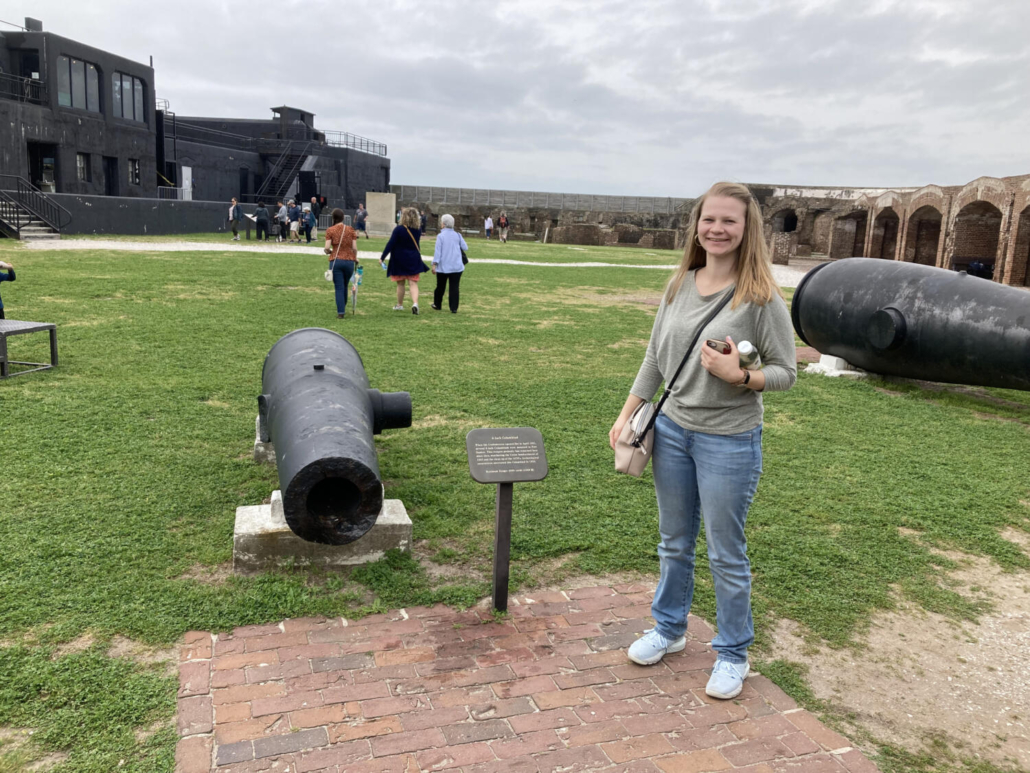

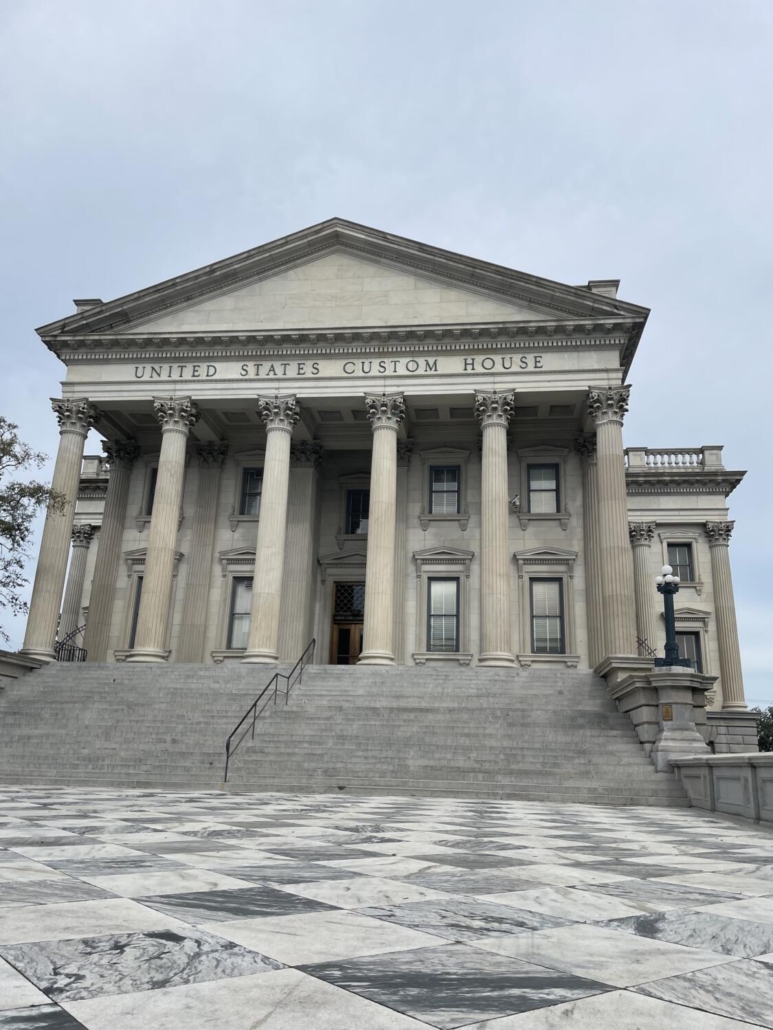
After returning to the mainland, there was a quick lunch before we proceeded to the historic district of the city to complete a “treasure hunt” and see the notable houses and landmarks that depict the vestiges of a historic city. We went from the renowned Rainbow Row, a street of pastel-colored townhouses, through alleys draped in greenery and paved with cobblestone, and ended at the city market, one of the oldest in the country—completed around the 1830s. This market is a four-block-long section of covered open aisleways and open-air sheds housing various local vendors distributing Charleston-themed wares. To finish the day in the city, we stopped at a vintage ice cream parlor for an icy treat on the stairs of the grand customs house, which was constructed in 1879. On the way home, some girls headed to the dock to paddleboard on the river, while the rest relaxed for the last evening spent in the area.
Monday morning began with a quick packing-up of the cars, and we headed off to the Charleston Tea Garden, the producer of “American Classic” tea. It was the first tea to be made with produce grown wholly in America. This tea garden is a lovely estate with ancient oak trees covered with Spanish moss, which creates an enchanting southern picture. After heading out from the tea plantation, we proceeded down the road to another notable feature of the Charleston experience: the Angel Oak Tree. Massive in size, this living piece of history has been around for hundreds of years, and we had the opportunity to view its magnificence while enjoying our lunch. All this concluded the enjoyable and educational experience of the ladies’ Charleston trip!
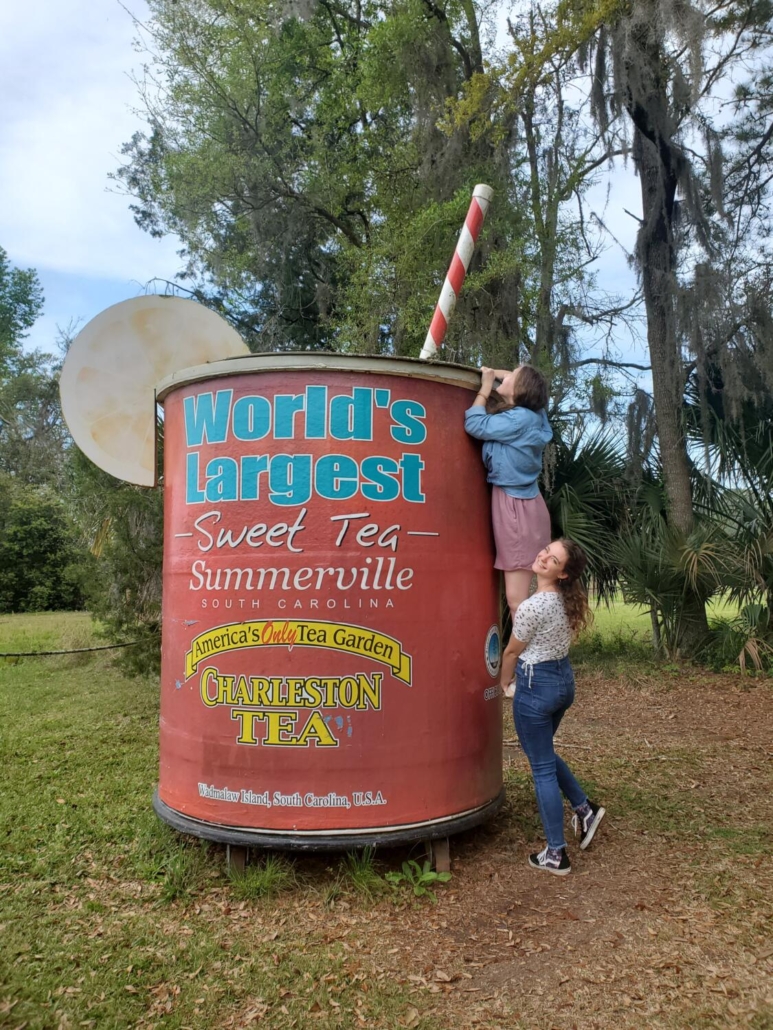
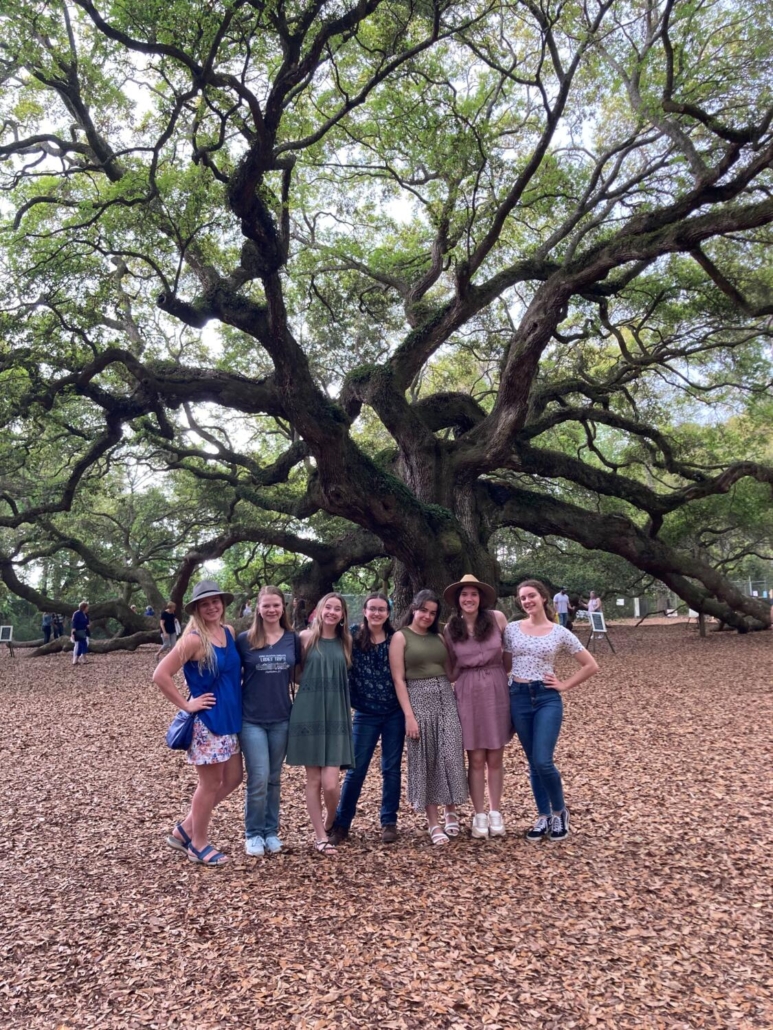
The prior activity the Living Education students had experienced was the BMW Tour, and the guys were included in that one. Read about that here: How the Ultimate Driving Machine Is Made! (BMW Tour).
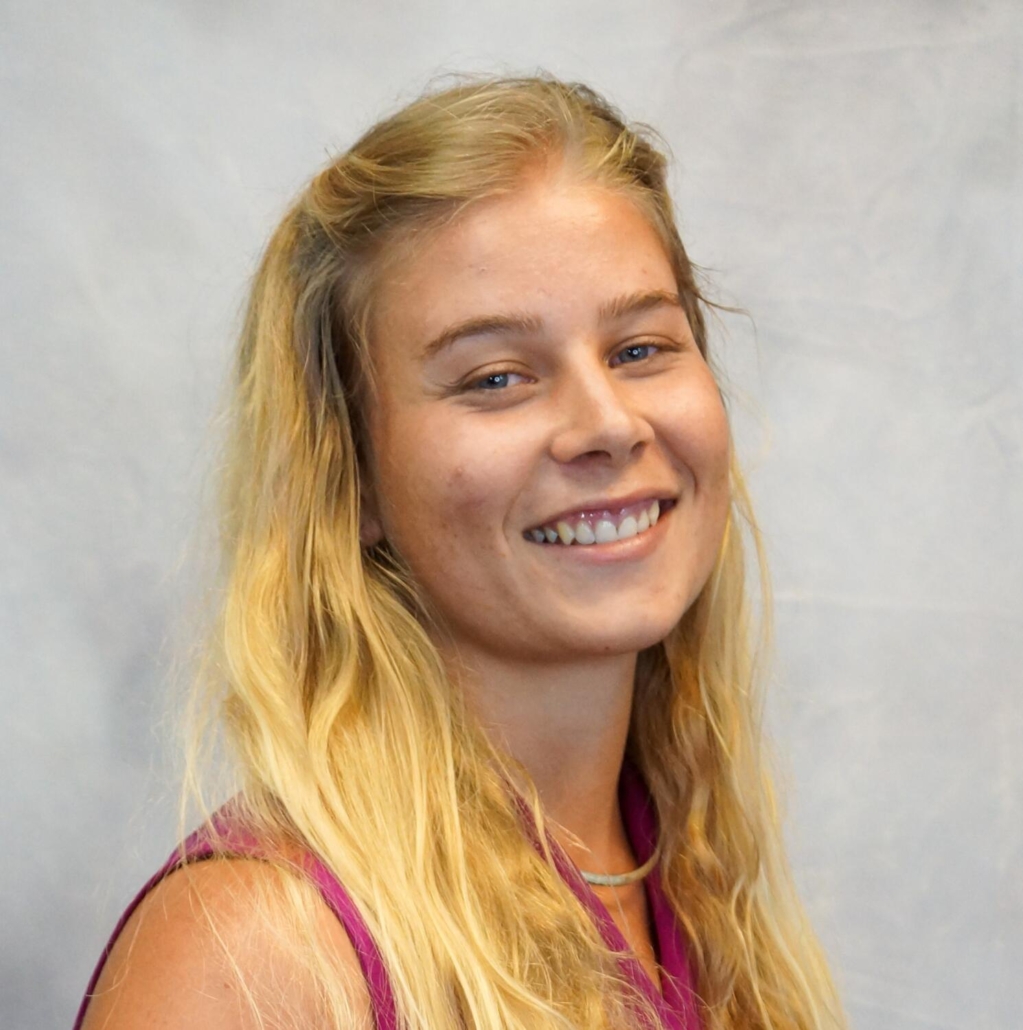
Sabrielle McNair is currently one of the student leaders at Living Education. For the majority of her life, Sabrielle lived in Albany, New York. Having grown up in the church, she has been involved in church programs since she was a young girl. Presently, she works as the women’s Resident Assistant, assists in LivingEd event preparations, works in the finance department, and writes for the website.
This Bible study course is a befitting resource to help you prepare for Passover. This course offers a wealth of information as well as perspectives from six different ministers—including both Presiding Evangelists of the Living Church of God, Dr. Meredith and Mr. Weston. It will help you prepare for the Passover and find subjects for you to dig into in your personal Bible study as well. If you have not already, we hope you will take the time to enroll! If you have already, we hope you will review it anyway.
Therefore purge out the old leaven, that you may be a new lump, since you truly are unleavened. For indeed Christ, our Passover, was sacrificed for us. Therefore let us keep the feast, not with old leaven, nor with the leaven of malice and wickedness, but with the unleavened bread of sincerity and truth.
1 Corinthians 5:7-8 NKJV

Author: Nathan Kroon | Student Leader, Living Education – Charlotte, 2022-23
Estimated Reading Time: 7 min.
Mr. Peter Nathan spoke about this issue in his forum. Many people know what it’s like to go to the optometrist. They check our eyes and help us to see clearly. They may help us with our physical vision, but how can we perfect our overall worldview? Our worldview must certainly be different from that of the rest of the world, because the concepts that they promote have led to the increasing spread of the secular mindset. What concepts from the world do we have to avoid to flee from a secular mindset and to have a balanced worldview?
Thomas Aquinas (1225-1274) was one of the foremost Catholic theologians in history. In the present day, The Thomist magazine is regularly published, studying his thoughts and religious beliefs. His beliefs called for a separation between the physical and spiritual world. “He was important in the re-introduction of the study of the natural world,” said Mr. Nathan. He then read from 1 John 2:15-17: “Do not love the world or the things in the world. If anyone loves the world, the love of the Father is not in him. For all that is in the world—the lust of the flesh, the lust of the eyes, and the pride of life—is not of the Father but is of the world. And the world is passing away, and the lust of it; but he who does the will of God abides forever.” It’s clear that Satan loves to promote a focus on the natural world rather than the things of God. These are not meant to be separated like different floors in a house!
Figures like Aquinas became the subject of many art pieces of the Renaissance era, which was greatly concerned with philosophy. Fast forward to the twentieth century, and the result of mankind’s obsession with the natural world was clearly seen: dwindling levels of godly morality. Author Harry Blaimes claimed that “there is no longer a Christian mind.” Herbert W. Armstrong warned the world many years ago about the movements to bring about the “new morality” the world is so wrapped up in now. Modern “Christians” may read the Bible, pray, and attend their services, but as a thinking being, they have succumbed to secularism. A true Christian must be willing to recognize their role in the Church, be it large or small, and to be employed by the Church in whatever capacity they are called to. To accomplish that, we must not let the “upstairs” and the “downstairs” operate separately in our minds.
How do we let the word of the Bible help us to maintain a godly worldview? First, we must be truly dedicated to making ourselves more like Christ, being crucified with Him and ever working to live the life that He would live in us (Galatians 2:20). Our personal worldview must be shaped by the knowledge of God. Mr. Nathan read from 2 Corinthians 10:4-5 to magnify this point: “For the weapons of our warfare are not carnal but mighty in God for pulling down strongholds, casting down arguments and every high thing that exalts itself against the knowledge of God, bringing every thought into captivity to the obedience of Christ,” We must be quick to defend the truth and not let human reasoning affect our thoughts. It is estimated that around 50,000 thoughts pass through our minds each day. “Make sure every thought comes into the captivity of the will of God,” said Mr. Nathan.
We may try to come out of the world to the best of our ability, but even at our best, it may seem like we are taking two steps forward and one step back. In order to better further our progress towards the Kingdom of God, we must realize how man has gradually become more and more secularized over the years. Most people think of Charles Darwin in terms of evolutionary theory, but his theory directly separates God from nature, having evolution seemingly replace the idea of a Creator in people’s minds. It allowed people to think of all creation as a very closed universe, not considering what it means for our grand future. The consequences of Darwin’s theories are evident in our everyday lives. The first Humanist Society was established in 1929 by Charles Potter, who believed that education is the most powerful ally of humanism. Through human education, it seems that people are now more concerned with reasoning around the need for a Creator. Schools are now extremely humanist. Marriage is no longer seen as a spiritual institution. Mr. Nathan listed the focuses that secularization has had throughout the last few centuries:
We may reason about the physical world, but reason is not a source of infallible, autonomous truth; God (“the upstairs”) is! Reason is simply a human’s ability to process information, and it is shaped by what you accept as your ultimate authority. Ours, therefore, should be shaped by God.
What are people typically defined by today? Income, dress, education, gender, and religion. These are all things that can be physically seen. A worldview must provide a valid purpose for the physically unseen: our origins, the source of evil, the solution to evil, and our future. Our worldview must have a spiritual focus that is able to decipher what is going on in the physical. Our perception of God is shaped by our views on an open or closed universe, and on God as either a trinity or family. These are the things that must shape our worldview:
To avoid being secularized, keep these in mind at all times. We must not block off the staircase between the spiritual and the physical. Avoiding a secular mindset will bring us a brighter future!

Nathan Kroon is a Student Leader at Living Education. He originally hails from Washington State and is a 4th generation Christian. Currently, he works at Headquarters as a Video Editor and is the Lead Landscaper at the LivingEd dorms. His hobbies include playing guitar, listening to music, drawing, and watching movies.
Author: Kaleb Johnson | Student, Living Education – Charlotte, 2022-23
Estimated reading time: 5 min.
Smartphone Users, Try our mobile friendly version!
Have you ever wondered what it’s like to work in a Library? Or what it’s like to help produce a regularly aired TV program? If yes, then you’re in luck! The Living Education work/study program has students working as a Technical Assistant in the TV studio and a Librarian for the RCM memorial Library. This post gives an inside look at two students—Madeline McNair and Rachel White—and their positions.
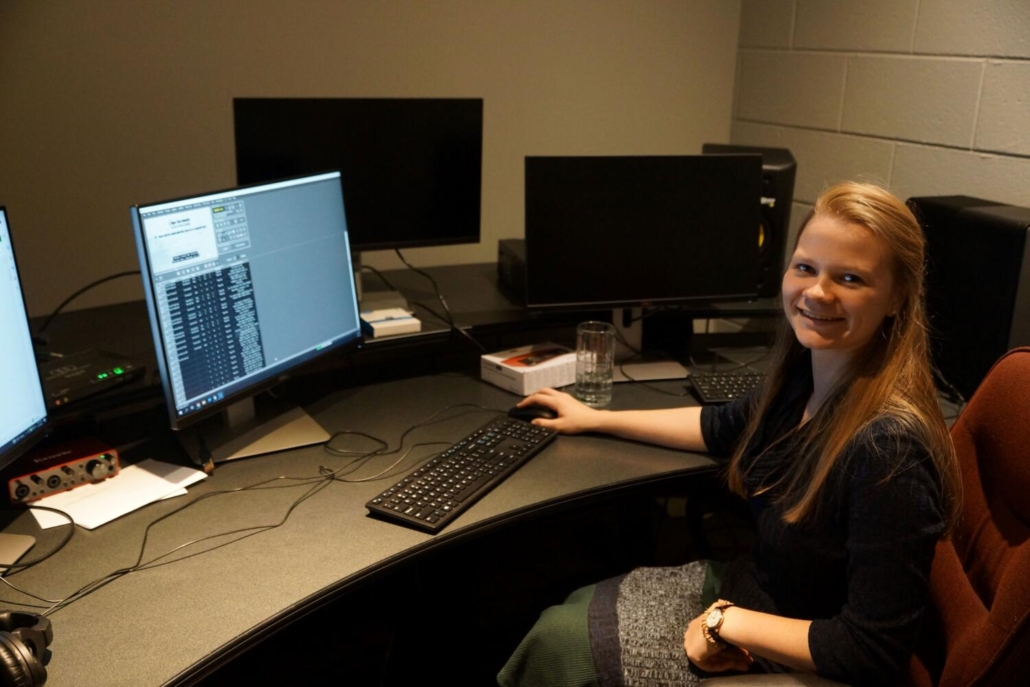
Madeline is a first-year student, but she worked in the Television Studio prior to enrollment. She primarily cleans the audio of the telecast recordings using Adobe Audition, removing intrusive background sounds picked up by the high-quality microphones. This requires a very attuned ear to pick up even the smallest clicks and rustles in an audio track! She also has begun making the closed captioning for telecasts as well as finding wartime videos and pictures for the telecasts.
The most fun part of the job? “I would say being a part of that part of the Work [making telecasts], because the TV studio is a separate building than the office so it is a different experience. You really see a lot of the actual telecast production; I’ve seen them film a couple of them, which is interesting. It is interesting to see how much work goes into the production process.”
The most challenging part of the job? “It is kind of hard doing repetitive work like that [Audio Correction]. It takes a while to go through. It’s a thirty minute program, and it takes longer than that going through each one.”
Do you have a fun story from your job? “One time we were waiting for a telecast to start because there was some delay, and Mr. Ames was going to be filming. And he was just sitting, just waiting, and he started singing a hymn, just to himself. But he was mic’d, so everyone was hearing him just sing a hymn to himself.”
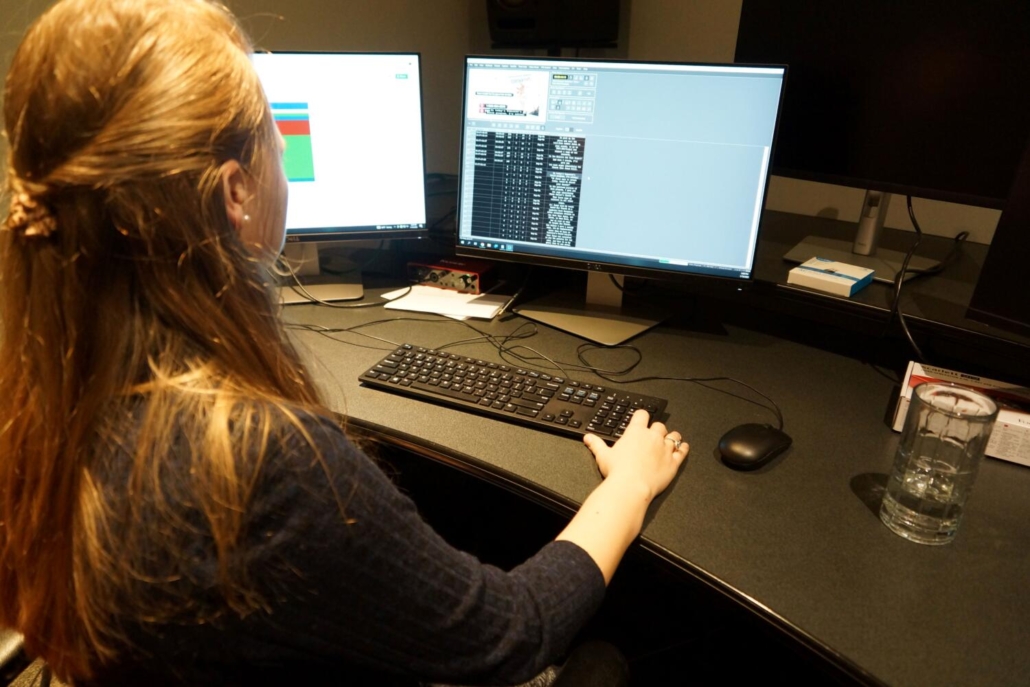
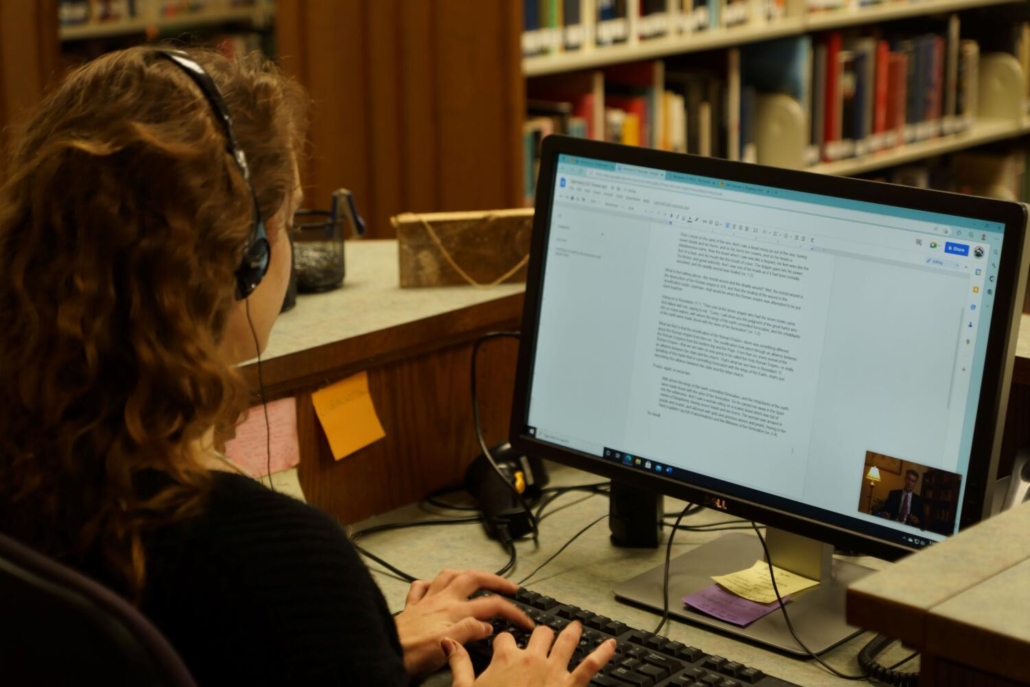
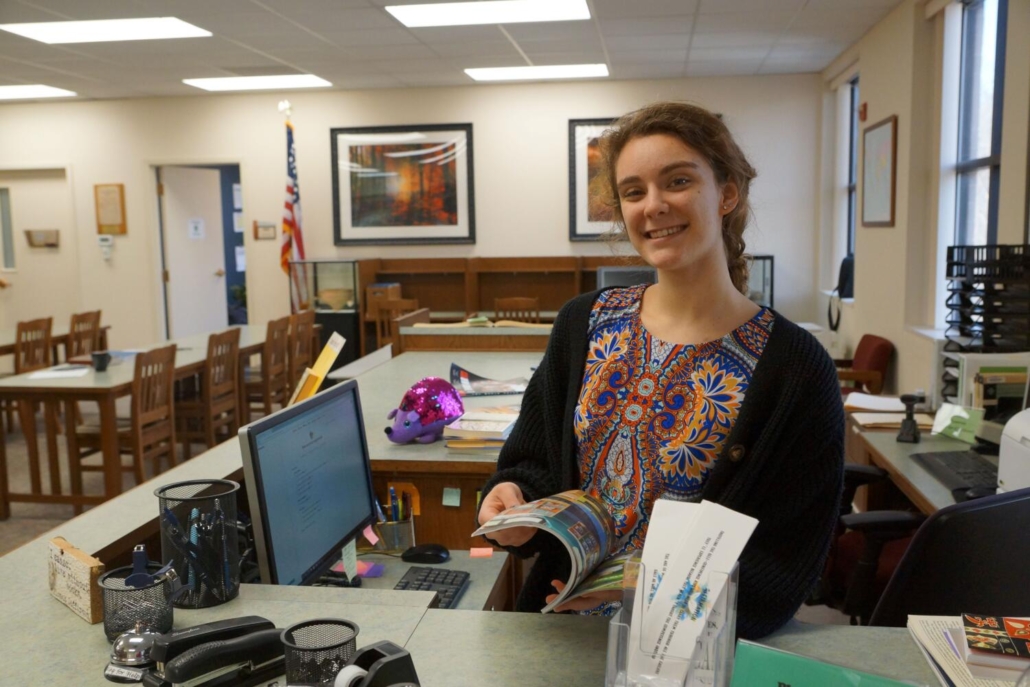
Rachel White is a first-year student who works in the RCM Library at the Headquarters office. She works as the Librarian but also helps with Living Education projects, such as the Germany in Prophecy course. With any spare time she may (or may not) have, she transcribes for the Editorial Department as well.
The most fun part of the job? “I like setting up displays [book displays in the Library], especially when there is nothing specifically that needs to go up there because I get to decide what category I want. I did displays on the Psalms and Acts. We have a bunch of different books on the brain and how being religious affects your brain, and I’d like to do a display for that too.”
The most challenging part of the job? “One of things I’ve had the most trouble with is the transcribing and trying to get what the speakers say to make sense in writing. Everything they say makes sense but it doesn’t translate to paper. Trying to get what they say to work on paper is much more challenging than you would think.”
Do you have a fun story from your job? “I found a folder [In Archives] that said, ‘Heresy Version.’ I was like, ‘What is this?’ And so I opened it up and it had letters between Tkach and other ministers and different stuff Worldwide was putting out at that time [during the apostasy]. It was really interesting. The way it was worded was very confusing and very slightly changing doctrines and changing mindset. So yeah, I found the ‘Heresy Version’ folder.”
Read the previous work/study highlights we’ve put out if you’re interested!

Kaleb Johnson is a student in the Living Education-Charlotte Program. He graduated with a degree in Chemical Engineering from the University of Alabama in Huntsville in the spring of 2022. In addition, Kaleb enjoys writing, video-making, trying new activities (anything and everything), playing chess, and debating (it’s not arguing!) with people. He currently works in the Living Education department producing written content & videos and helping with a variety of other projects.
